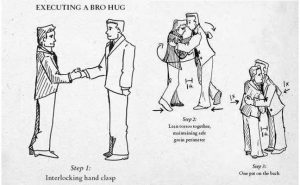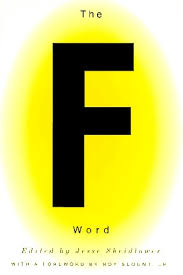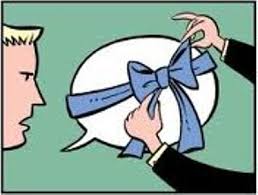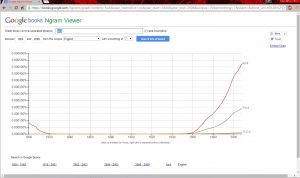That one wasn’t familiar to me, but we’ve all heard many others. These are what is sometimes called a “minced oath.” Here are some examples:
- Effing
- F-bomb
- F word
- F*ck
- F**k
- F***
- F-ck
- F—k
- Flaming
- Fracking
- Fricking
- Freaking
- Frigging
- FUBAR
- Fudge
- WTF
- Flipping
- Fork/ Forking
- Foxtrot Uniform
- Whiskey Tango Foxtrot
- Smurfing
- Frelling
- Bleep/ Bleeping
- Fark (not to be confused with FARC, which might add unintended political themes to your work!)
- fiddle-faddle
- fiddlesticks
- fug
- cotton-pickin’
- I could keep going, but the internet would eventually run out of pixels…
Although listeners know exactly what the euphemism stands for, many feel that the impact of the euphemism loses much of the cathartic value of the original and may come across as tepid, ineffectual, or just plain namby-pamby.

William Shakespeare was one of the most creative users of minced oaths and euphemisms to describe everything from copulation to defecation, writing some of the most vividly imaginative phrases to avoid the censorship of the age. Juliet may have had the sheath to make Romeo’s dagger happy, but no children’s ears had to be covered.

Of course, this still wasn’t clean enough for Dr. Thomas Bowdler and his sister Harriet. In 1818, they announced the publication of a G-rated book of Shakespseare’s work, in which “those words and expressions are omitted which cannot with propriety be read aloud in a family.” The Family Shakespeare didn’t sell particularly well (and was a pretty short book), but “bowdlerise” became a term for overdone, fussy, prissy censorship.
Note to writers: consciously decide whether to use a euphemism or the original. There is a time for vulgarity and a time for bowdlerising.
- A sexual act in its most straightforward form, as in “Let’s fuck.”
- Transitive: John fucked Mary.
- Intransitive: Mary was fucked by John.
- To cheat or mistreat someone, as in “She totally fucked me.”
- Referring to the act itself, as in a specific event being “ A great fuck.”
- Referring to a partner, as in “A great fuck” referring to the other person involved.
- Referring to an incentive or strong feeling on any subject.
- Used in place of his/her, as in “Tell the fucker at the end of the bar that I buy my own drinks.”
- A modifier to a verb as in

or

2. A modifier to another adverb, as in “The Broncos played fucking well out there.”
3. A modifier to an adjective, as in “Fucking beautiful.”
- A modifier to a noun, as in “That was some fucking speech!” or “I had a fucking good time.”
- Connecting two parts of a sentence, as in “I left, fuck the boss’s order.”
- Ignorance: Fuck if I know.
- Trouble: Mary returned and I’m fucked now
- Fraud: I got fucked in the real estate deal.
- Aggression: Fuck you!
- Displeasure: What the fuck do you think you’re doing?
- Difficulty: I can’t understand these fucking data!
- Incompetence: You fuck-off!
- Stupidly or incompetence: You really fucked up that negotiation.
- Rejection: Get the fuck out of here. Fuck off.
- Suspicion: What the fuck are you doing?
- Apathy: I don’t give a fuck.
- Dismay: Oh, fuck, they left without us
- Anxiety: I am totally fucked today.
- Greeting: How the fuck are you?
 The Bro-Hug, as explained by Higher Un-Learning
The Bro-Hug, as explained by Higher Un-Learning
It has a Wikipedia entry that runs to 19 pages, which goes into the history and gives examples of modern usage in politics, marketing, and literature. And as the Urban Dictionary says of it, “The only fucking word that can be put everyfuckingwhere and still fucking make fucking sens













